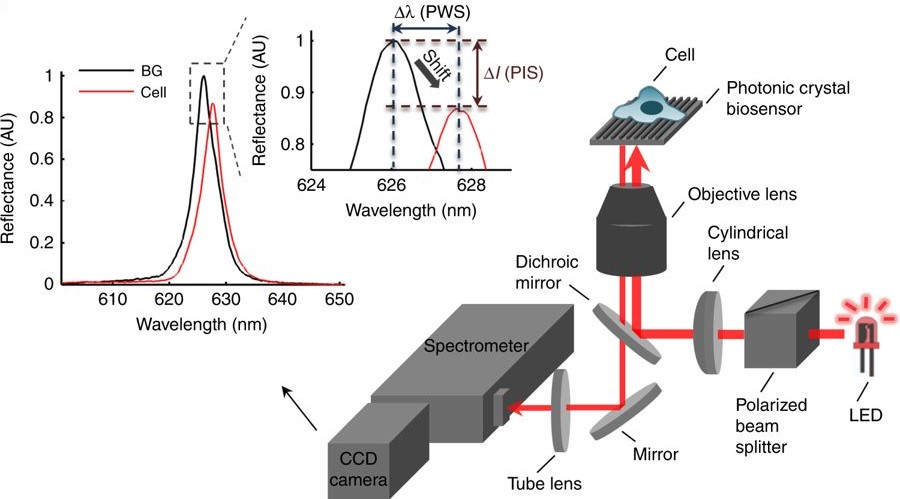A novel label-free microscopy modality that quantitatively measures the scatter-induced changes in reflected intensity from a photonic crystal biosensor surface to reveal the kinetic evolution and spatial features of focal adhesions (FA) that form at the cell-surface interface. Compared to a sensing approach in which image contrast is generated by the dielectric permittivity of attached cell components, PROM provides contrast in reflected resonant intensity that is induced by the refractive index contrast of localized protein clusters that occur at the cell-surface interface that comprise FA sites. PROM is expected to be a highly useful tool that can reveal the mechanisms of biological processes that occur near the cell membrane when it is attached to extracellular matrix materials during apoptosis, stem cell differentiation, migration, division, and metastasis.



